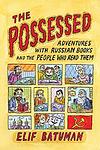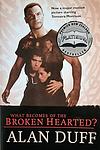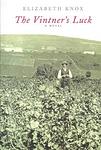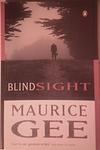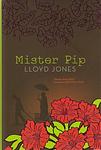The Greatest New Zealander, Turkish "Fiction" Books Since 1980
Click to learn how this list is calculated.
This list represents a comprehensive and trusted collection of the greatest books. Developed through a specialized algorithm, it brings together 300 'best of' book lists to form a definitive guide to the world's most acclaimed books. For those interested in how these books are chosen, additional details can be found on the rankings page.
Genres
Countries
Date Range
Reading Statistics
Click the button below to see how many of these books you've read!
Download
If you're interested in downloading this list as a CSV file for use in a spreadsheet application, you can easily do so by clicking the button below. Please note that to ensure a manageable file size and faster download, the CSV will include details for only the first 500 books.
Download-
1. My Name is Red by Orhan Pamuk
Set in the late 16th century Ottoman Empire, this novel explores the conflict between East and West, tradition and innovation, through the lens of miniaturist painters. When a renowned artist is murdered, his colleagues must solve the mystery while grappling with the changes in their art brought about by the western Renaissance. This complex narrative intertwines love, art, religion, and power, offering a deep exploration of the struggles between old and new.
-
2. The Bone People by Keri Hulme
"The Bone People" is a complex, emotional novel that explores the lives of three characters - a reclusive artist, a young mute boy, and his adoptive father - in New Zealand. The narrative delves into themes such as Maori culture, love, violence, and isolation while showcasing the struggle of these individuals as they try to form a family unit despite their personal traumas and societal pressures. The book's unique blend of prose and poetry, along with its blend of English and Maori language, adds to its depth and richness.
-
3. Snow by Orhan Pamuk
Set in the small city of Kars in northeastern Turkey, the novel follows a Turkish poet who has spent several years in political exile in Germany. He returns to Turkey during a time of political unrest, with tensions high between religious and secular factions. As he becomes embroiled in the turmoil, he also becomes involved in a romantic relationship with a beautiful woman. The city is cut off from the rest of the world by a relentless snowstorm, leading to a series of tragic events. The novel is a contemplation on love, faith, and the tensions between tradition and modernity.
-
4. Life is a Carawanserai Has Two Doors I Went in One I Came out the Other by Emine Sevgi Özdamar
This novel follows the life of a young Turkish girl growing up in the 1950s and 60s, exploring her experiences in a rapidly changing society. The protagonist navigates the complexities of her family life, her struggle with her identity and her eventual emigration to Germany. The book explores themes of female empowerment, cultural clashes, and the immigrant experience, all told through a unique narrative style that blends reality with dreams and folktales.
-
5. Berji Kristin by Latife Tekin
The book is a poignant exploration of the lives of squatters in the outskirts of Istanbul during the 1970s and 1980s. Through a blend of magical realism and stark social commentary, it tells the story of a community of rural migrants who, in search of better prospects, build a shantytown named "Flower Hill" on the city's periphery. The narrative delves into the daily struggles, dreams, and communal bonds of these individuals as they grapple with the harsh realities of urban poverty, political upheaval, and rapid modernization that threaten to erase their makeshift neighborhood. The novel is a tapestry of interconnected tales that together paint a vivid portrait of resilience and survival amidst systemic marginalization.
-
6. The Black Book by Orhan Pamuk
The novel focuses on a man searching for his wife in Istanbul, who disappeared without a trace. In his search, he discovers a secret, surreal world in the city and starts to understand his wife's involvement in political activism. The narrative is interwoven with stories from a column written by his wife's half-brother, which the protagonist believes may hold clues to her disappearance. The book is a complex exploration of identity, storytelling, and the role of literature in society.
-
7. The Luminaries by Eleanor Catton
Set during the New Zealand Gold Rush of the 19th century, this novel follows Walter Moody, a prospector who stumbles upon a secret meeting of twelve local men who are trying to solve a series of unsolved crimes. As the story unfolds, it becomes clear that the crimes, which include a rich man's disappearance, a prostitute's attempted suicide, and a huge fortune found in a drunkard's cottage, are all interconnected. The novel's complex narrative structure, which uses astrology to organize its characters and events, adds another layer of intrigue to the story.
-
8. The Forty Rules of Love by Elif Shafak
This novel intertwines two parallel narratives, one set in the 13th century and one in the modern day. The contemporary story follows a discontented American housewife who, while working as a reader for a literary agency, comes across a novel about the 13th-century poet Rumi and his spiritual mentor, Shams of Tabriz. As she delves into their story, she uncovers Shams' forty rules of love and begins to question her own life and relationships. The historical narrative, on the other hand, explores the transformative friendship between Rumi and Shams, and how their bond revolutionized Rumi's poetry and outlook on life.
-
9. The Museum Of Innocence by Orhan Pamuk
This novel delves into the obsessive love of Kemal, a wealthy Istanbulite, for Füsun, a distant relative and a shopgirl, which begins in 1975 and spans over 30 years. After a brief affair, Füsun marries another man, but Kemal's love remains unyielding. He starts collecting objects that remind him of his love for her, eventually creating a museum dedicated to their relationship. Set against the backdrop of Istanbul's changing society, the story explores themes of love, longing, class, and the power of memory, as Kemal's life becomes a testament to his unattainable desire, encapsulated within the walls of his museum.
-
10. The Possessed by Elif Batuman
"The Possessed" is a compelling narrative that combines memoir, criticism, and travel writing to explore the author's deep fascination with Russian literature. Through her experiences as a graduate student at Stanford, her travels to Turkey, Russia, and Uzbekistan, and her encounters with other scholars, the author delves into the works of great Russian authors such as Tolstoy, Dostoevsky, and Chekhov, while also reflecting on the nature of literature, identity, and the human condition.
-
11. What Becomes Of The Broken Hearted? by Alan Duff
"What Becomes Of The Broken Hearted?" by Alan Duff is a powerful and gritty novel that delves into the lives of a Maori family living in New Zealand. Set against a backdrop of poverty, violence, and racism, the story follows the struggles and triumphs of Jake, a young man desperate to escape the cycle of despair that has plagued his family for generations. With raw and unflinching honesty, the book explores themes of identity, love, and redemption, painting a vivid and haunting portrait of a community grappling with the consequences of a broken heart.
-
12. The Bastard of Istanbul by Elif Shafak
"The Bastard of Istanbul" is a novel that tells the story of two families, one Turkish and one Armenian American. It explores the deep, intricate history between the two nations through the eyes of the characters, while also tackling themes of identity, memory, and the past. The narrative unfolds through the perspectives of the women in both families, who carry the burden of their ancestors' secrets, and a young man haunted by the ghost of a long-dead Armenian. The novel delves into the complexities of love, family, and the lasting effects of the Armenian genocide on its descendants.
-
13. Live Bodies by Maurice Gee
In "Live Bodies" by Maurice Gee, a small town in New Zealand becomes the setting for a mysterious and unsettling series of events. As the townspeople grapple with their own secrets and desires, a young girl named Alice discovers a hidden power within herself. As tensions rise and the lines between reality and fantasy blur, Alice must confront the darkness that lurks beneath the surface of her seemingly idyllic community. With rich prose and a captivating plot, "Live Bodies" explores themes of identity, power, and the complexities of human nature.
-
14. The Vintner's Luck by Elizabeth Knox
"The Vintner's Luck" is a captivating novel that follows the life of a young vintner named Sobran, who forms an unlikely friendship with an angel named Xas. Set in 19th century France, the story explores themes of love, passion, and the pursuit of dreams as Sobran navigates the challenges of winemaking and the complexities of his relationships with both mortals and celestial beings. Through beautifully descriptive prose and rich character development, the book delves into the intricacies of the human spirit and the intertwining of the mundane and the divine.
-
15. Harlequin Rex by Owen Marshall
"Harlequin Rex" is a captivating novel that explores the life of a man named Rex, who is born with a rare condition that causes him to have a clown-like appearance. Despite the challenges he faces, Rex embarks on a journey of self-discovery and acceptance, navigating through a world that often judges based on appearances. Through his unique perspective and experiences, the book delves into themes of identity, love, and the complexities of human relationships.
-
16. The Book Of Fame by Lloyd Jones
"The Book of Fame" by Lloyd Jones is a captivating novel that delves into the lives of the 1905 All Blacks, New Zealand's first national rugby team. Through a series of interconnected stories, the book explores themes of fame, identity, and the impact of sport on society. It offers a unique perspective on the players' journey to international recognition, their struggles, triumphs, and the lasting legacy they leave behind. With its lyrical prose and rich characterization, this book is a celebration of both rugby and the human spirit.
-
17. The Shag Incident by Stephanie Johnson
"The Shag Incident" by Stephanie Johnson is a captivating coming-of-age novel that follows the journey of a young woman named Emma as she navigates the complexities of love, friendship, and self-discovery. Set in a small coastal town, Emma finds herself entangled in a scandalous affair that challenges her perceptions of morality and forces her to confront her own desires. With richly developed characters and an engaging plot, this thought-provoking novel explores themes of identity, societal expectations, and the consequences of our actions.
-
18. Stonedogs by Craig Marriner
"Stonedogs" by Craig Marriner is a gritty and atmospheric novel set in New Zealand, following the lives of a group of disillusioned young people living on the fringes of society. The story delves into their struggles with addiction, violence, and the search for meaning in a world that seems to offer them little hope. With vivid and raw prose, Marriner explores the complexities of human nature and the consequences of one's choices, ultimately painting a haunting portrait of a generation lost in a haze of drugs and desperation.
-
19. Slow Water by Annamarie Jagose
"Slow Water" is a captivating novel that follows the journey of a young woman named Sophie as she navigates the complexities of love, desire, and self-discovery. Set in a small coastal town, the story unravels through Sophie's encounters with various characters, each with their own secrets and desires. Through lyrical prose and intricate storytelling, the book explores themes of identity, sexuality, and the power dynamics that shape our relationships. As Sophie delves deeper into her own desires and confronts societal expectations, she begins to question the boundaries of love and the true nature of intimacy.
-
20. Tu by Patricia Grace
"Tu" is a heartfelt novel that explores the life of a young Maori boy named Tu, who is raised by his grandparents in rural New Zealand. Set in the 1960s, the story follows Tu's journey as he navigates the challenges of growing up in a changing society, grappling with his identity, and finding his place within his community. Through vivid storytelling and rich cultural references, the novel delves into themes of family, tradition, and the enduring power of love and resilience.
-
21. Blindsight by Maurice Gee
In a dystopian world where a mysterious disease has left people blind, a young boy named Theo possesses the ability to see. As he navigates through a society that fears and shuns him, Theo discovers a hidden underground community of others with sight. Together, they embark on a dangerous journey to uncover the truth behind the epidemic and restore hope to their shattered world. This captivating novel explores themes of resilience, acceptance, and the power of perception.
-
22. Mister Pip by Lloyd Jones
In a war-torn village on a remote island, a young girl named Matilda finds solace and escape in the pages of a book called "Great Expectations". Taught by a mysterious and charismatic teacher, Mr. Watts, Matilda becomes enthralled by the story and its protagonist, Pip. As the conflict escalates and the outside world encroaches upon their isolated community, the power of literature and the transformative impact of storytelling are revealed, leaving a lasting impression on Matilda and those around her.
-
23. Opportunity by Charlotte Grimshaw
"Opportunity" is a gripping novel that delves into the lives of a wealthy New Zealand family, exploring themes of ambition, betrayal, and the pursuit of success. As secrets unravel and hidden desires come to light, the characters navigate a world of privilege and power, where choices made in the pursuit of opportunity have far-reaching consequences. With its compelling narrative and complex characters, this book offers a thought-provoking exploration of the lengths people will go to in order to seize their chance at success.
-
24. A Novel About My Wife by Emily Perkins
"A Novel About My Wife" is a captivating exploration of a marriage on the brink of collapse. Told from the perspective of the husband, the story delves into the complexities of love, desire, and the secrets that can unravel even the strongest of relationships. As the husband grapples with his own insecurities and suspicions, he becomes consumed by the mystery surrounding his wife's past, leading him down a path of self-discovery and ultimately forcing him to confront the truth about their marriage.
-
25. As The Earth Turns Silver by Alison Wong
Set in early 20th century New Zealand, "As The Earth Turns Silver" is a historical novel that explores the complex relationships between Chinese immigrants and the European settlers. The story follows the lives of two characters, a Chinese immigrant named Yung, who works as a valet for a wealthy white family, and Katherine, the wife of the family's lawyer. As their lives intertwine, they navigate the societal prejudices and expectations of the time, while also confronting their own desires and secrets. Through their forbidden love affair, Wong delves into themes of identity, racism, and the struggle for acceptance in a changing world.
Reading Statistics
Click the button below to see how many of these books you've read!
Download
If you're interested in downloading this list as a CSV file for use in a spreadsheet application, you can easily do so by clicking the button below. Please note that to ensure a manageable file size and faster download, the CSV will include details for only the first 500 books.
Download







